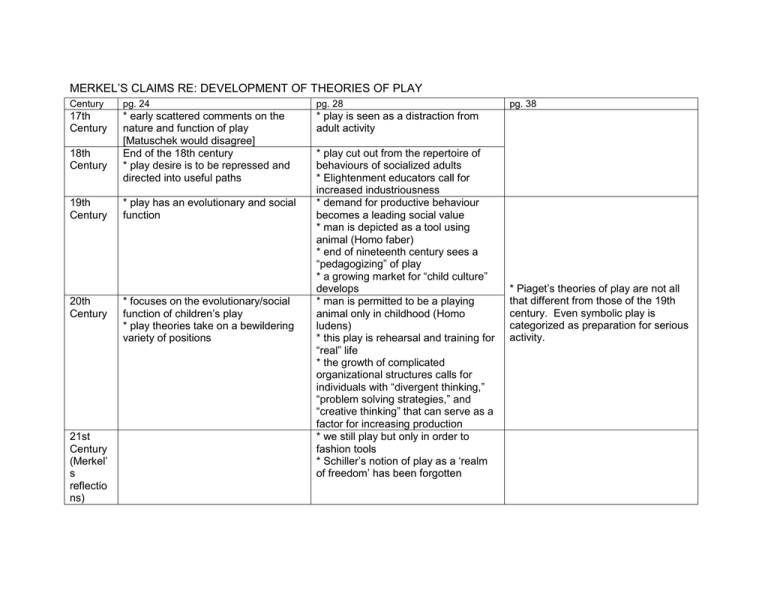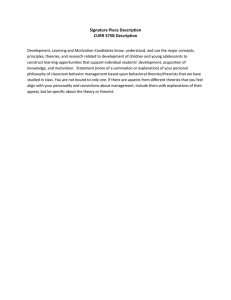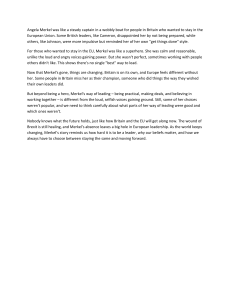MERKEL’S CLAIMS RE: DEVELOPMENT OF THEORIES OF PLAY
advertisement

MERKEL’S CLAIMS RE: DEVELOPMENT OF THEORIES OF PLAY Century pg. 24 pg. 28 17th Century * early scattered comments on the nature and function of play [Matuschek would disagree] End of the 18th century * play desire is to be repressed and directed into useful paths * play is seen as a distraction from adult activity 18th Century 19th Century * play has an evolutionary and social function 20th Century * focuses on the evolutionary/social function of children’s play * play theories take on a bewildering variety of positions 21st Century (Merkel’ s reflectio ns) * play cut out from the repertoire of behaviours of socialized adults * Elightenment educators call for increased industriousness * demand for productive behaviour becomes a leading social value * man is depicted as a tool using animal (Homo faber) * end of nineteenth century sees a “pedagogizing” of play * a growing market for “child culture” develops * man is permitted to be a playing animal only in childhood (Homo ludens) * this play is rehearsal and training for “real” life * the growth of complicated organizational structures calls for individuals with “divergent thinking,” “problem solving strategies,” and “creative thinking” that can serve as a factor for increasing production * we still play but only in order to fashion tools * Schiller’s notion of play as a ‘realm of freedom’ has been forgotten pg. 38 * Piaget’s theories of play are not all that different from those of the 19th century. Even symbolic play is categorized as preparation for serious activity.



